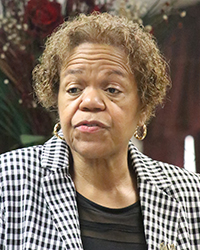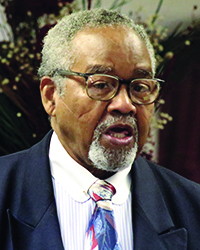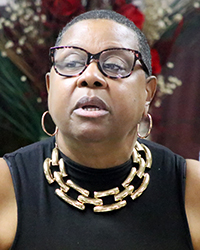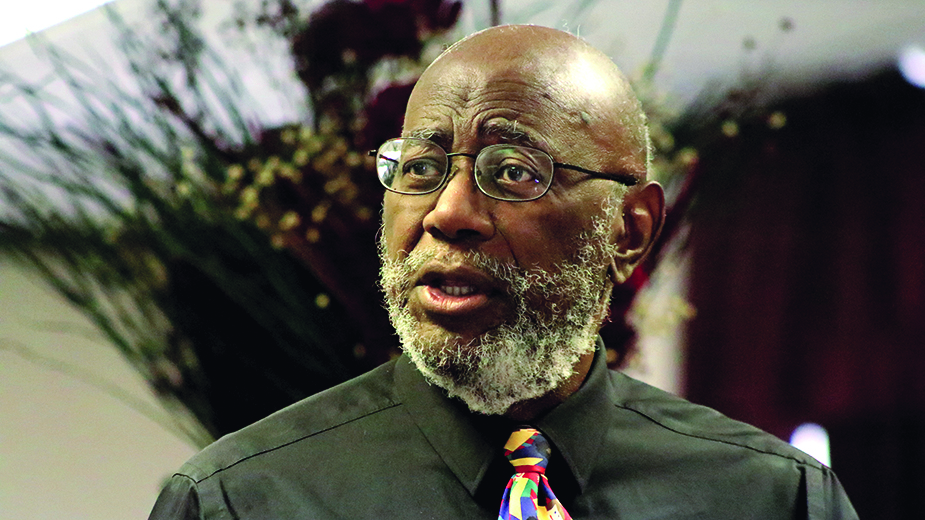YOUNGSTOWN, Ohio – Test scores in the Youngstown City School District are not improving and an advocacy group wants to know why.
The Community Education Oversight Task Force called for action at a press event Aug. 18.
“Youngstown City Schools has failed these children by the record,” said Jimma McWilson, a member of the state school board’s task force to address the academic achievement gap.
“Three billion [dollars spent] in 25 years to be at the bottom. There is a relentless pursuit of the bottom, not of the top,” he said.
According to figures the local education advocacy group culled from public records, only 32% of the district’s students in grades K-12 received an A, B or C on the 2022 spring Northwest Evaluation Association math tests. The NWEA is a nonprofit organization that creates academic assessments.

The tests – administered in the fall, winter and spring – are designed to show academic growth. But from fall 2021 through spring 2022, Jackie Adair and others with the oversight task force said there have not been any remarkable improvements.
“In my analysis of the math test results, there is a clear indication that the majority of our K-12 students have failed to make measurable growth during the past school year,” Adair said. “As a result, I expect this year’s report cards to reflect this same unfortunate outcome.”
McWilson, a former vice president of the local NAACP, broke down the reading scores, citing only the numbers for the Black students in the district: 75.4% tested at a D or F level in the fall of 2021, 77.6% in the winter and 73.7% in the spring.
Youngstown City Schools are moving out of the state control system that it was placed under for the past six years.
The district has written a three-year academic improvement plan with benchmarks it intends to focus on, including math, literacy and science.
Youngstown City Schools Deputy Superintendent Jeremy Batchelor said the district believes if it follows academic improvement practices, proficiencies will follow with the school district meeting at least 13 of the 24 indicators.
“We believe we are on the right track,” Batchelor said. It can take five to seven years to realize school district improvement and the district is staying the course with [Justin] Jennings’ leadership, he said.
Jennings served as the CEO of the district starting in August 2019 and will now serve as superintendent.
Batchelor spoke of consistency in practices and not making changes based on the new “flavor of the month” in education.
“We believe if we stay the course, we will see the improvements at the Youngstown City Schools,” Batchelor said.
But members of the task force group believe the improvement goals set by the school district are setting the bar too low.
McWilson said he believes the public school system was designed to fail Black children, created in 1825 with white supremacy in mind. The Black, White and brown school leaders who have followed and adopted the same pattern, he said, have done nothing to change it.

“As long as they do what they’ve always done, they will always get what they’ve gotten,” McWilson said.
McWilson, Adair and two other leaders of the local NAACP, George Freeman Jr. and Darla Dunlap, are urging parents to get involved and push education leaders to provide every student with the quality public education promised to every student since 1954 with the Brown v. Board of Education decision of the U.S. Supreme Court.
Adair is urging a return to an emphasis on reading, writing and arithmetic. She believes the schools need to concentrate on academics, spend extra time on core subjects, hire more qualified math teachers and tutors and create more disciplined class environments.
“We all know that nothing positive can be accomplished in chaos,” Adair said.
Both she and McWilson spoke of the recent decision by the superintendent to spend $7.8 million to upgrade athletics facilities when academics are lacking.
Adair, a former math teacher and former member of the Youngstown City Schools board, said the lack of leadership is part of the ongoing, longstanding academic failures of the school district, which is hurting Black students.

Dunlap, the chairwoman of the NAACP Educational Justice Committee, said she hopes all stakeholders will come together to find a solution to address the needs of Black students who attend the Youngstown City Schools.
By 2025, McWilson said the school district’s plan continues to project that only 33% of students in third, fourth and fifth grades will pass the math portion of the tests.
He argued the district has “normalized failure” and uses many excuses for not improving.
“If families don’t come together, parents don’t come together and fathers don’t come together, the system is always going to do to you and your children what they have always done and then convince you that you are the problem. That’s not the way it works,” McWilson said.
Adair noted there is sometimes a cultural disconnect between students and teachers, with the majority of students in the district being Black while more than 95% of the teachers and administrators are not.
However, in a disciplined classroom and with experience, she believes teachers and students can reach an understanding.
While Youngstown City Schools spends more per pupil than any other school district in Mahoning County, McWilson pointed out that public schools in Steubenville spend $5,000 less per pupil and have achieved success.
Members of the group said the root of the problem is not poverty or violent crime. McWilson cited a statistic that 98% of the people living in the city of Youngstown are not involved in any violent crime at all. “Trauma, poverty and homelessness, yes those are issues. But other places are dealing with those issues also,” he said, adding that other schools are able to rise above those challenges.
Pictured at top: Jimma McWilson is a member of the state school board’s task force to address the academic achievement gap.
